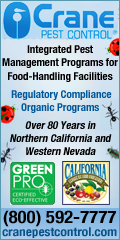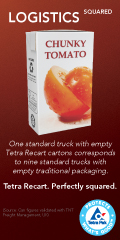
| Archives/Subscribe | www.clfp.com | Contact Us | June 5, 2012 |
Preparing for CARB’s Cap-and-Trade Program
Now is the time for California food processors to prepare to minimize their costs as the state implements its greenhouse gas cap-and-trade rules, also known as AB 32. Why now? This summer the California Air Resources Board (CARB) makes a series of AB 32 compliance and carbon allowance allocation decisions for food processors that will lock in facility carbon emission reduction targets for the next eight years. Before CARB locks in your facility carbon allowance allocations and launches carbon auctions, food processors should evaluate your options and chart a course forward to minimize your cost of compliance. If you are wondering if you should buy carbon allowances during CARB’s upcoming auctions, the short answer is: Look before you leap. Before your company decides to buy or sell carbon allowances or offsets, determine what your facility compliance obligations will be during the next eight years and establish an AB 32 compliance strategy to guide your actions. There are some key actions that food processors should do now to determine your compliance obligations and establish an AB 32 strategy. Actions to take now include:
Carefully evaluate the full range of life cycle costs and the relative values of on-site reduction compared to buying or selling allowances and offsets. A large part of your AB 32 cost will come from increased energy costs. Not only can process improvements reduce your emission costs, but they can also reduce your electricity and gas bills. A successful AB 32 compliance strategy has the flexibility to manage changing regulatory, legal and market conditions. Evaluate all your options and timing before you buy or sell carbon allowances or offsets. Most importantly, use net life cycle costs to chart your strategy to maximize the effectiveness of your actions to save costs under AB 32. This guest column was written by Allan Bedwell, URS Corporation’s California Practice Leader for Climate Change & Renewable Energy Services. Allan is based in URS’s San Francisco office. If you have questions about AB 32 and how to minimize your costs, please contact Allan at allan.bedwell@urs.com or (415) 243-3787. |
|
| CALIFORNIA LEAGUE OF FOOD PROCESSORS 2485 Natomas Park Dr., Suite 550 Sacramento, CA 95833 Phone: (916) 640-8150 Fax: (916) 640-8156 www.clfp.com |
 |



